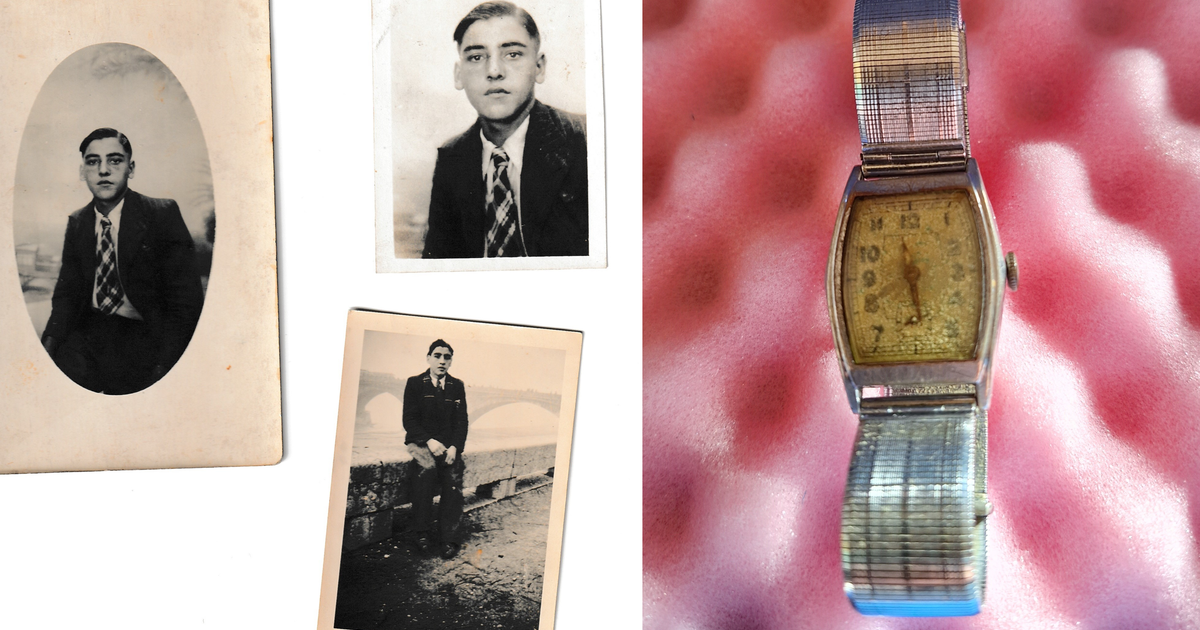Le Figaro Lyon
Eddine Zini was raised in the memory of his uncle who died in the camps on April 7, 1945 at barely twenty years old.
During the end of the Second World War, Yvon Montagny, a switchman from the south of Lyon, was unjustly accused of having sabotaged the Lyon-Marseille train line (a gendarmerie investigation would later prove his innocence, see slideshow) .
He was arrested on May 5, 1944 before being deported on July 18 of the same year.
He died a few days before the liberation of the Neuengamme camp.
The ghost of this ancestor has always “haunted” the Zini family.
“Since my childhood, I have been prepared for a possible Third World War.
The war was something that was very present throughout my youth
,” confides to Le
Figaro
Eddine Zini.
Gisèle, his mother, compiled all the documents she could find on her brother, whose body was never returned.
An
“impossible”
mourning and the indelible scar of this brother who left too soon, which Gisèle will carry all her life.
Archives of Yvon Montagny
Access the slideshow (5)
“Good evening Mr Zini.
I am writing to you from Belgium
»
The family story could have ended there.
However, on February 12 at 7:08 p.m., Eddine's phone announced the receipt of a new message.
“Good evening Mr Zini.
My name is Georges Sougné.
I am writing to you from Belgium.
(…) You are the nephew of Yvon Montagny (1925-1945).
You are his closest descendant.
Our center preserves your uncle's personal effects, which were confiscated from him by the Nazis during his arrest in 1944
.
A text message sent by a volunteer from the Arolsen archives located in Germany.
Eddine is shocked by the news.
“I stayed glued to my chair.
For me, it was in the past but it brought back my whole life, my childhood
,” he says.
And to continue:
“My mother only had one brother and my family fought to preserve his memory because we always carried this feeling of injustice linked to his death.
I couldn't believe that 80 years later (my parents were no longer there), all of this could resurface
.
The hands stopped at 11:28 a.m.
He then contacts the archives which tell him that they are in possession of a watch that belonged to his uncle.
An object, whose hands stopped at 11:28 a.m., which was returned to him on March 13 in the archives of the metropolis of Lyon and the Rhône department.
A difficult moment, as if the story skipped a generation for Eddine:
“I was shocked to receive this watch.
My mother should have been in my place.
“That might have allowed him to die in peace
. ”
The following weekend, Yvon Montagny's nephew went to visit the family vault
"to talk about it with them and share this event"
.
Still shaken today, he still says
he is “very proud”
to have been able to recover this watch.
“It takes me time to digest but here it is, the circle is complete.
I will now strive to pass all this on to my children and grandchildren
. ”
The Arolsen Archives
The Arolsen Archives (called “International Tracing Service” until May 2019) in Bad Arolsen, Germany, is the world's most important documentation, information and research center on persecution. Nazis, the Holocaust, forced labor and those stranded after World War II in displaced persons camps.
30 million original documents are preserved there on 17.5 million people.
This documentary collection also contains envelopes containing personal effects (watches, jewelry, wallets, letters, etc.) that were confiscated from deportees upon their arrival in prison or concentration camp.
Today, some 2,500 envelopes are still kept in the archives.

